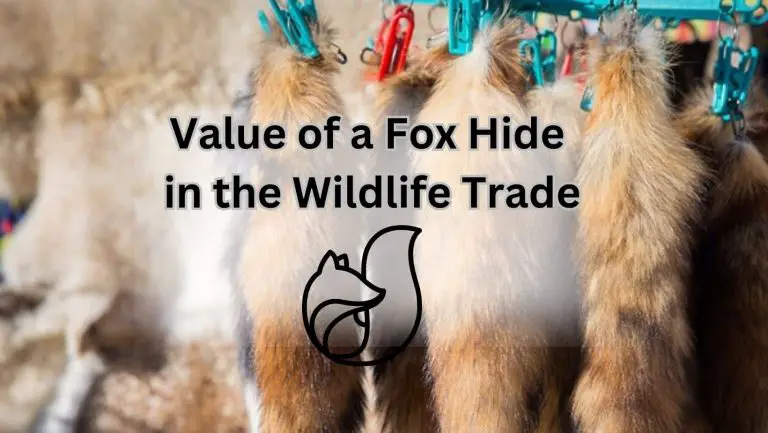Is it Legal to Hunt Foxes in North Carolina? Find Out!

Legality of Killing Foxes in North Carolina
Is it legal to kill a fox in North Carolina? The answer to this question is not as straightforward as it may seem. Let’s delve into the regulations surrounding fox hunting and wildlife control laws in North Carolina to understand the legality of killing foxes in the state.
Regulations on Fox Hunting
So, you’re thinking about going fox hunting in North Carolina? Before you grab your gear and head out into the wilderness, it’s essential to know the rules and regulations surrounding this activity. Fox hunting is legal in North Carolina, but there are specific guidelines that hunters must follow to ensure they are within the law.
From obtaining the necessary permits and licenses to adhering to hunting seasons and bag limits, there are strict regulations in place to protect both the fox population and the environment. Failure to comply with these regulations can result in hefty fines and penalties, so it’s crucial to familiarize yourself with the rules before embarking on a fox hunting expedition.
Protected Species Status
Are foxes considered a protected species in North Carolina? Yes, red foxes are considered a protected species in the state. While hunting foxes is legal, there are restrictions in place to ensure the conservation of these animals. It is essential to respect the protected status of foxes and follow the regulations set forth by wildlife authorities to prevent any harm to the population.
As a responsible hunter or wildlife enthusiast, it is crucial to understand the importance of preserving the red fox population in North Carolina. By obeying the laws and regulations surrounding fox hunting, you can contribute to the conservation efforts aimed at maintaining a healthy and sustainable fox population in the state.
Permits and Licenses Required
Do you need permits and licenses to kill a fox in North Carolina? Yes, hunters are required to obtain the necessary permits and licenses to engage in fox hunting legally. These permits help wildlife authorities monitor and regulate hunting activities to ensure the sustainability of the fox population.
Before you set out on a fox hunting expedition, make sure you have the appropriate permits and licenses in place to avoid any legal repercussions. By following the rules and regulations set forth by the state, you can enjoy a safe and responsible hunting experience while contributing to the conservation of North Carolina’s wildlife.
Fox Population in North Carolina
Impact on Ecosystem
Did you know that the red fox population in North Carolina plays a crucial role in maintaining the balance of the ecosystem? These cunning creatures help control rodent populations, which can otherwise wreak havoc on crops and other wildlife. However, an overabundance of foxes can also lead to competition with other native species for food and territory.
Control Measures
So, what can be done to manage the fox population in North Carolina? Wildlife control laws in the state allow for the removal of foxes under certain circumstances. It’s important to contact professionals who specialize in humane wildlife removal to ensure the safety and well-being of both humans and animals.
Human-Wildlife Conflict
Have you ever found yourself in a sticky situation with a fox on your property? While these furry critters may look cute, they can cause damage to gardens, livestock, and even pose a threat to pets. In such cases, it’s essential to seek assistance from wildlife removal services that can safely relocate the fox without harming it.
Remember, it’s crucial to respect the wildlife laws and regulations in North Carolina when dealing with foxes. By understanding the impact of the fox population on the ecosystem, implementing appropriate control measures, and addressing human-wildlife conflicts in a humane manner, we can coexist harmoniously with these fascinating creatures.
Methods of Fox Control
Trapping and Relocation
Ever wondered how to deal with those pesky foxes causing trouble in your neighborhood? Well, trapping and relocation might just be the solution you’re looking for! But is it legal to do so in North Carolina? Let’s find out.
Trapping and relocating foxes can be a humane way to handle the situation. However, in North Carolina, it’s important to note that you may need a permit to trap and relocate wildlife. The North Carolina Wildlife Resources Commission regulates the trapping and relocation of foxes, so make sure to check with them before taking any action.
Non-Lethal Deterrents
Tired of the foxes rummaging through your garbage cans or causing a ruckus in your backyard? Non-lethal deterrents might be the way to go. But are they effective in keeping foxes at bay in North Carolina?
Non-lethal deterrents such as motion-activated sprinklers or noise devices can be useful in deterring foxes from your property. These methods are safe for both the foxes and your belongings. However, it’s essential to remember that foxes are intelligent creatures, so you may need to switch up your deterrent tactics from time to time to keep them on their toes.
Hunting and Shooting
So, you’re considering hunting or shooting the foxes as a means of control. But before you grab your rifle, you need to know if it’s legal to do so in North Carolina. Let’s dive into the regulations.
Hunting and shooting foxes in North Carolina are legal activities, but they must be done within the confines of the state’s hunting regulations. It’s crucial to obtain the necessary permits and follow the guidelines set forth by the North Carolina Wildlife Resources Commission. Remember, safety should always be a top priority when engaging in hunting activities.
So, there you have it – a comprehensive look at the methods of fox control in North Carolina. Whether you choose trapping and relocation, non-lethal deterrents, or hunting and shooting, always remember to prioritize the well-being of both the foxes and yourself. Happy fox controlling!
Fox Behavior and Habits
Nocturnal Activity
Ever wondered why foxes are so active at night? Well, it’s because they are nocturnal creatures! These sneaky little critters prefer to do their hunting and exploring under the cover of darkness. So, if you happen to see a fox roaming around your neighborhood in the middle of the night, don’t be alarmed – they’re just doing what comes naturally to them.
Diet and Prey Selection
What’s on the menu for a hungry fox? These clever canids have a varied diet that includes small mammals, birds, insects, fruits, and even the occasional tasty treat from your garbage can. With such a diverse range of food choices, it’s no wonder foxes are able to thrive in a variety of habitats. Just make sure to keep your pet rabbit indoors if you know there are foxes in the area!
Reproduction and Family Structure
Fox families are a tight-knit bunch! A typical fox family consists of a mated pair and their young, known as kits. These furry families work together to raise their offspring, with both parents taking on the responsibility of hunting and caring for the little ones. It’s quite the family affair in the world of foxes!
So, the next time you spot a fox darting across your backyard or hear their eerie nighttime calls, remember that these fascinating creatures are just going about their daily lives. From their nocturnal antics to their diverse diet choices and strong family bonds, foxes are truly remarkable animals that deserve our respect and admiration. Just be sure to appreciate them from a distance and let them carry on with their wild ways in peace.
Risks Associated with Foxes
Disease Transmission
Ever wondered about the risks associated with foxes when it comes to disease transmission? Well, let’s dive into it! Foxes can carry diseases such as rabies, mange, and distemper, which can pose a threat to both humans and pets. In North Carolina, it is essential to be aware of these risks and take necessary precautions to protect yourself and your furry friends.
Livestock Predation
Curious about how foxes can impact livestock in North Carolina? Foxes are known to prey on small animals such as chickens, rabbits, and even young lambs. This can be a concern for farmers and livestock owners in the area. Understanding the risks of livestock predation by foxes can help you take proactive measures to protect your animals.
Property Damage
Have you ever thought about the potential property damage caused by foxes in North Carolina? Foxes are notorious for digging up yards, gardens, and even damaging property structures in search of food or shelter. It’s important to be aware of these risks and implement effective measures to deter foxes from causing damage to your property.
In North Carolina, understanding the risks associated with foxes is crucial for both wildlife enthusiasts and property owners. By being informed about disease transmission, livestock predation, and property damage, you can take proactive steps to mitigate these risks and coexist peacefully with these fascinating creatures. Remember, knowledge is power when it comes to dealing with foxes in the Tar Heel State!
Alternatives to Killing Foxes
Habitat Modification
Ever wondered how you can peacefully coexist with our furry fox friends without resorting to extreme measures? Well, let’s talk about habitat modification! By making your property less appealing to foxes, you can discourage them from hanging around without causing harm. Simple actions like securing your garbage cans, removing potential food sources like fallen fruits, and sealing off crawl spaces can make a big difference.
Scare Tactics
Are you tired of dealing with pesky foxes but don’t want to harm them? Why not try some scare tactics instead? Foxes are intelligent creatures, and they can be deterred by loud noises, bright lights, or even motion-activated sprinklers. You can also use natural repellents like citrus peels or predator urine to keep them at bay. It’s a win-win situation – the foxes stay safe, and you get some peace of mind.
Professional Wildlife Control Services
So, you’ve tried everything, but those foxes just won’t leave you alone. Don’t worry, there’s no need to resort to drastic measures. Instead of taking matters into your own hands, consider hiring professional wildlife control services. These experts are trained to handle wildlife humanely and can safely relocate the foxes to a more suitable location. Plus, they can offer long-term solutions to prevent future fox problems. It’s a safe and effective way to deal with the situation without causing harm to these beautiful creatures.
Cultural and Historical Significance
Foxes in Folklore and Mythology
Ever wondered why foxes have such a prominent place in folklore and mythology? Well, these cunning creatures have been featured in stories from around the world for centuries. In North Carolina, foxes are often seen as symbols of intelligence and adaptability. From Native American legends to European fairy tales, foxes have always captured our imaginations. But did you know that in some cultures, the fox is also seen as a trickster figure? It’s no wonder they have such a complex and fascinating reputation.
Fox Hunting Traditions
Ah, the age-old tradition of fox hunting. While it may have once been a popular pastime in North Carolina, times have changed. Nowadays, hunting foxes for sport is not as common as it used to be. With a greater emphasis on conservation and wildlife protection, many people have turned away from this practice. But did you know that fox hunting still holds a special place in the hearts of some enthusiasts? The thrill of the chase and the camaraderie among hunters can still be found in certain circles.
Conservation Efforts
As awareness about the importance of wildlife conservation grows, so does the need to protect our furry friends like the red fox. In North Carolina, efforts are being made to ensure the survival of these beautiful creatures. From creating wildlife corridors to implementing laws and regulations that protect fox populations, there is a concerted effort to safeguard their future. But did you know that you can also play a role in conservation? By supporting local wildlife organizations and advocating for responsible wildlife management, you can make a difference in the lives of foxes and other animals.
So, next time you see a fox darting through the woods or hear a story about these fascinating creatures, remember the cultural and historical significance they hold. From folklore and mythology to conservation efforts, foxes have left their mark on North Carolina and beyond. Let’s continue to appreciate and protect these amazing animals for generations to come.
Public Opinion on Fox Control
Animal Rights Advocates
Ever wondered what animal rights advocates think about fox control in North Carolina? Well, let me tell you – they are not big fans of it. Killing foxes is a controversial topic among animal lovers, as they believe in protecting all creatures, big and small. These advocates argue that there are more humane ways to deal with fox-related issues without resorting to lethal methods.
Farmers and Landowners
Now, let’s shift our focus to farmers and landowners. Picture this – you have a beautiful farm in North Carolina, but pesky foxes keep causing trouble. What do you do? Well, many farmers and landowners believe that controlling the fox population is necessary to protect their livestock and property. They may support the legal killing of foxes as a means of safeguarding their livelihoods.
Government Policies and Public Perception
Have you ever wondered how government policies and public perception influence fox control in North Carolina? It’s a complex dance between regulations and public opinion. The state’s hunting regulations play a significant role in determining the legality of killing foxes. Additionally, public perception can sway decision-making on this matter, as attitudes towards wildlife conservation and animal welfare evolve over time.
So, there you have it – a glimpse into the diverse perspectives on fox control in North Carolina. From animal rights advocates to farmers and landowners, and government policies to public perception, the debate over killing foxes is multifaceted and ever-evolving. It’s a wild world out there, folks!
Legal Consequences of Unlawful Fox Killing
Fines and Penalties
Are you aware of the potential fines and penalties for unlawfully killing a fox in North Carolina? Let’s dive into this topic. In North Carolina, it is illegal to kill foxes without the proper permits or in violation of wildlife control laws. If caught, individuals could face hefty fines ranging from hundreds to thousands of dollars. These fines are no laughing matter and can have serious financial repercussions. So, it’s essential to understand and abide by the laws to avoid getting yourself into trouble.
Criminal Charges
Have you ever considered the criminal charges that could result from killing a fox illegally in North Carolina? It’s no joke! In addition to fines, individuals may also face criminal charges for unlawfully killing foxes. These charges can vary depending on the circumstances but may include misdemeanors or even felonies in severe cases. So, before you take matters into your own hands, make sure you are well-informed about the legal implications of your actions.
Civil Lawsuits
Did you know that killing a fox illegally in North Carolina could also lead to civil lawsuits? That’s right! In addition to fines and criminal charges, individuals may also find themselves facing civil lawsuits from wildlife conservation groups or concerned citizens. These lawsuits can result in significant financial damages and tarnish your reputation. So, it’s crucial to think twice before engaging in any activities that could harm foxes in the state.
Remember, foxes play a vital role in the ecosystem, and it’s essential to respect wildlife and follow the laws in place to protect them. By understanding the legal consequences of unlawful fox killing in North Carolina, you can help preserve these beautiful creatures for future generations to enjoy. So, next time you come across a fox, admire its beauty from a distance and let it thrive in its natural habitat.
Resources for Responsible Fox Management
Wildlife Rehabilitation Centers
Are you wondering where injured or orphaned foxes can go for help? Wildlife rehabilitation centers are your best bet! These centers provide care and treatment to foxes in need, ensuring their well-being and ultimately releasing them back into the wild. Remember, it’s always best to seek professional help when dealing with wildlife.
State Wildlife Agencies
Curious about the regulations surrounding fox management in North Carolina? State wildlife agencies are your go-to source for information on hunting laws, population control measures, and conservation efforts. Stay informed and abide by the rules to ensure the protection of foxes and their natural habitats.
Educational Programs and Workshops
Looking to learn more about fox behavior and conservation? Educational programs and workshops offer valuable insights into the world of these fascinating creatures. From understanding their ecological role to implementing humane management practices, there’s always something new to discover. Get involved and make a difference in the lives of foxes!
Remember, responsible fox management is key to maintaining a healthy balance in our ecosystems. By utilizing the resources available to you, you can contribute to the well-being of these majestic animals and help preserve their populations for future generations. Stay informed, stay engaged, and most importantly, respect the wildlife around you. Foxes are an integral part of our natural world, and it’s up to all of us to ensure their continued survival.







